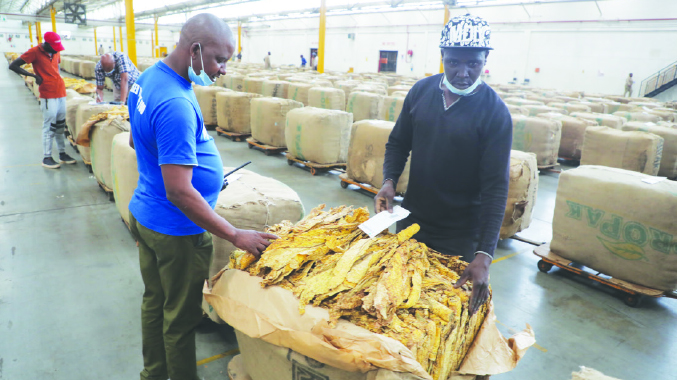Zim spurs growth in agro-entrepreneurship

“f I were a young entrepreneur starting out in business now, I would seriously consider agriculture.
“Especially with the exciting new technologies emerging, I would look at what experts now call the “agro-food sector.”
The above quotation from one of business mogul Strive Masiyiwa’s business teachings on his Facebook page is indicative of how robust and progressive the global food market has become.
The acknowledgement of the vibrancy of the agriculture sector, by Masiyiwa, a renowned and successful businessman who has made a name for himself in telecommunications and is living off the business, is telling of vast opportunities within the agriculture.
In that Facebook posting, Masiyiwa asserts that agriculture is not only a growing global market, but a critical human need that the young generation would need to use their entrepreneurial mind-set and technology so that it becomes profitable.
His belief in the vast opportunities the sector has to offer is premised on a number of variables with growth in global population being one of them.
Demand for food in Africa is changing dramatically and is opening great opportunities to create new wealth and jobs, across.
From tech-enabled primary production to packaged food, there are potentially lucrative opportunities in agriculture in Africa, which some countries have already begun to harness through financing and encouraging young people to venture into.
The World Bank reports that Africa’s domestic food market will increase three fold from the current food prices of US$13 billion to US$ 1 trillion in 2030.
The ongoing surge in food prices and supply disruption in the last few months owing to the Russia-Ukraine conflict has put Africa in the spotlight. Critics say Africa now needs to insulate itself and ameliorate global food shortages by investing seriously in agriculture.
The population growth and current conflict between Russia and Ukraine creates a lot of opportunities to existing farmers and potential agro-entrepreneurs knowing fully well that the market is quite huge and has potential for growth.
Rather be a by-stander in such a delicate situation, Africa finds itself in a position where it has to rise and utilise its strategic position as an emerging global economy, which boasts of a youthful demography, resources, strong leadership and hunger for development and growth.
With Africa boasting 60 percent of the world’s arable land — roughly 600 million hectares — and potential investment running into billions of dollars, the continent can grow the agriculture sector significantly and positively contributes to the global food production within a short period.
The growth will not only feed millions of people in need of food, but it will also create millions of jobs, while nourishing the downstream industry with business opportunities.
Rather than spend months knocking on doors, looking for opportunities or descend on old, mundane sectors, young entrepreneurs in need of jobs and flourishing opportunities need to consider venturing into agriculture, a sector that is proving to be a game changer to young entrepreneurs in need of challenging and riveting opportunities.
Across the continent, stories of young entrepreneurs who are doing well in the agricultural sector are too numerous to mention, with investors stampeding on such for business opportunities.
The situation is more pronounced in Zimbabwe, where hundreds of young entrepreneurs are opting for agriculture for better opportunities and good remuneration.
Several young people are doing well in cattle ranching, horticulture and farming of various cash-crops across Zimbabwe.
With opportunities opening up every day, it has become a daily occurrence to read stories of young and emerging entrepreneurs who are doing well in agriculture.
Statistics show that about 57 percent of Zimbabwean women between the ages of 21 and 31 and 47 percent of men in the same age bracket are growing fruits such as mangoes.
They are also involved in rearing livestock such as the prolific breeders Boer goats, and producing tobacco, corn and other major crops.
The country is witnessing a pro-young farmers’ mindset, by the Government, a development that is encouraging young people to take agriculture seriously.
While some agro-entrepreneurs have gone professional and are taking agriculture as a business, others say they are merely passionate about farming and are happy with the robust infrastructural development taking place across Zimbabwe.
However, like other sectors, passion alone is not strong enough a tool to thrive in agriculture, but it needs to be adequately supported by proper planning, skills and adequate machinery.
The mistake that most people make is to regard agriculture as nothing more than the activity of the poor, such that when they venture into the sector, they implement a lackadaisical approach instead of putting in place a business plan, which needs to be monitored and evaluated.
It is for that reason, that young entrepreneurs need adequate training, skills, technical expertise and full appreciation of the agriculture sector before they can even sink money and time.
The technical expertise coupled by resources will naturally spur the much needed growth in this billion-dollar industry, whose whole value chain possesses as much potential for entrepreneurship as telecommunications or mining. Outside technical expertise, enabling environment such as infrastructural development like construction of dams, roads, storage facilities and market access, well before the crop is ready are crucial.
It is heartening to note local agro-entrepreneurs will not struggle with infrastructure because the Second Republic has successfully invested in massive infrastructure such as dams and road networks, availing funding, proper policies and land in support of an array of economic activities — agriculture included.
President Mnangagwa recently announced that the Government has set in motion a comprehensive plan to promote start-ups in the agriculture sector and drive rural industrialisation through value addition of agricultural produce, among interventions to unlock inherent value in the sector.
The plan, which is pivoted on devolution, involves nurturing agro-processing start-up enterprises in rural areas through financial and technological support via venture capital funding and Government agencies.
To support the plan, President Mnangagwa has already set up a high-level taskforce spanning several ministries that is set to design and implement the strategic interventions that are envisaged to swiftly turn small farming enterprises into self-contained agro-processing businesses, while promoting agro-entrepreneurship.
Writing in his weekly column for The Sunday Mail, the President said the programme would facilitate the seamless entry of more local players into sectors controlled by monopolistic conglomerates.
“With the Land Reform Programme, agriculture has become a key sector for capital formation for most people and families,” he said.
“And because of the many value chains emerging from it, this is one sector holding many possibilities for numerous start-ups.”
Young entrepreneurs need not look high and above for business opportunities, but should turn to agriculture for sustained and long terms profits.
Once they have set their minds and resources on agriculture, young entrepreneurs will need to invest in knowledge, new agricultural techniques and practices so that they remain relevant while meeting the needs of the agro-sector.
Feedback: [email protected]










Comments